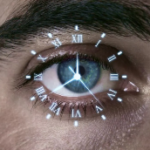Types of Lenses for Cataracts

By: Allen W. Zieker, M.D.
Board-Certified Ophthalmologist & Director of Cataract Surgery at Ophthalmic Consultants of the Capital Region
All About Eyes: Ask an Ophthalmologist
(As seen in The Daily Gazette)
Q. I need cataract surgery, but I don’t understand all my choices for lenses (IOLs). Can you please explain?
A. Sure, there is a lot of information to know when deciding which IOL is best for you. Be sure to find a cataract surgeon who is experienced in implanting all types of IOLs.
Monofocal Lenses
A monofocal intraocular lens (IOL) implant is good for distance vision, for example, when you’re driving. However, it does not correct intermediate or arms length vision for doing things like seeing the golf ball on the tee or viewing a computer screen clearly. Furthermore, a monofocal lens implant does not correct near vision for doing things up close such as reading. For these reasons, most patients deciding to have monofocal lens implants will be dependent on glasses most of the time. There is usually no extra out-of-pocket cost with a monofocal lens.
Accommodating Lenses
FDA approved accommodating lenses can shift from near to far vision in response to movements of the muscles in your eye similar to the natural lens in a younger eye. These lenses offer excellent distance and middle vision, but they aren’t as reliable for near vision. About 50 percent of patients who have accommodating lenses implanted still need reading glasses. Medicare/insurance usually does NOT cover the cost of an accommodating lens.
Multifocal Lenses
Multifocal lenses have different areas designed for distance, intermediate, and near vision. The brain and eye figure out which part of the lens to use. The main drawback for some patients is multifocal lenses may distort bright light at night, creating more glare and halos. Typically, multifocal lens implants result in the least dependency on eyeglasses. Medicare/insurance does NOT cover the cost of a multifocal lens.
Toric Lenses
These specialized lenses are designed for people with astigmatism. Toric lenses correct your astigmatism, so you may not need distance glasses after surgery.
TECNIS® SYMFONY Lenses
TECNIS® Symfony is great news for people with cataracts who have trouble reading or focus-
ing on close objects (presbyopia/far-sighted). The Symfony lens is a presbyopia-correcting extend-ed-range-of-vision IOL and can reduce your dependence on eye-glasses.
To learn all about cataracts and cataract surgery be sure to download our FREE cataract surgery guide.

